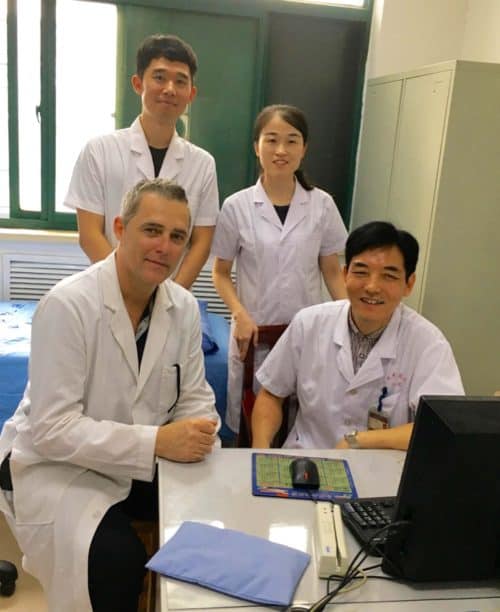When it comes to getting pregnant, old-world techniques may be just what today’s high-tech doctors will order.
By Colette Bouchez | WebMD Feature Reviewed by Brunilda Nazario, MD
If headlines are any indication of what’s hot and what’s not, it’s easy to believe that infertility treatment is strictly a modern-day science, made possible solely through the courtesy of high-tech medicine.
Ancient Art of fertility, but as good as modern science is many couples trying to get pregnant find themselves turning to an age-old treatment for help — one so steeped in tradition it’s about as far from life in the 21st century as one can get.

Dr. Tony Willcox in Anhui China learning the Art of fertility with Acupuncture and Chinese Medicine.
That treatment is acupuncture, and today, even high-tech reproductive specialists are looking to the somewhat mysterious world of Chinese medicine to help those fertility patients for whom western science alone is not quite enough.
“Most of our patients are referred to us by reproductive medicine specialists — they are usually women who have failed one or usually more than one attempt at IVF (in vitro fertilization), and their doctor is looking for something to help implement the success of their treatment, over and above what the protocols alone can accomplish,” says Raymond Chang, MD, the medical director of Meridian Medical and a classically trained acupuncturist as well as a western-trained medical doctor.
First, acupuncture strategically places tiny needles in a grid-like pattern to stimulate key energy points across the body. These points regulate spiritual, mental, emotional, and physical balance, benefiting many women. Specifically, James Dillard explains that acupuncture enhances body efficiency, boosting IVF success rates. For instance, a 2002 study in Fertility and Sterility showed acupuncture increased pregnancy rates. In the study, 80 women received two 25-minute acupuncture sessions during the embryo transfer procedure, while another 80 did not. Consequently, the acupuncture group achieved 34 pregnancies, compared to 21 in the IVF-only group. Moreover, Chang notes that acupuncture stimulates egg production without fertility drugs. In fact, acupuncture alone matches Clomid’s 50% pregnancy rate over three months for non-IVF patients. However, acupuncture typically produces one egg, insufficient for IVF’s multi-egg requirement.
When it comes to getting pregnant, old-world techniques may be just what today’s high-tech doctors will order. (continued)
When it comes to getting pregnant, old-world techniques may be just what today’s high-tech doctors will order. (continued)
References:
1- By Colette Bouchez, Reviewed by Brunilda Nazario, MD, The Ancient Art of Infertility Treatment ©2005-2011 WebMD, LLC. All rights reserved.